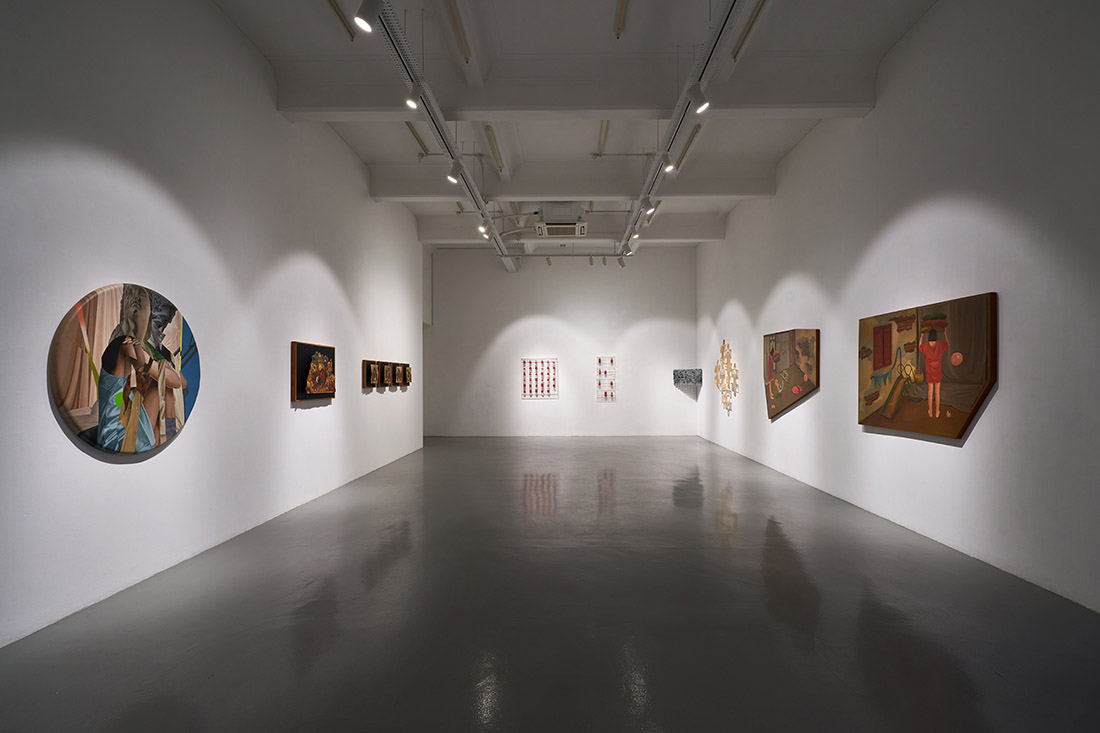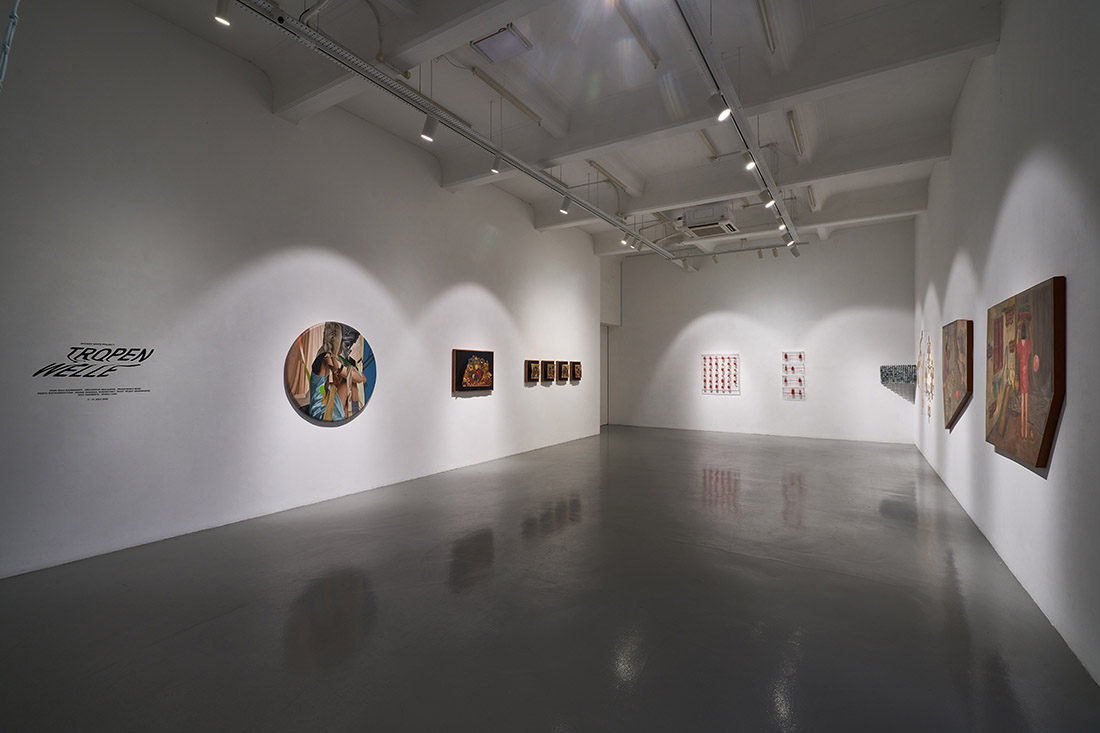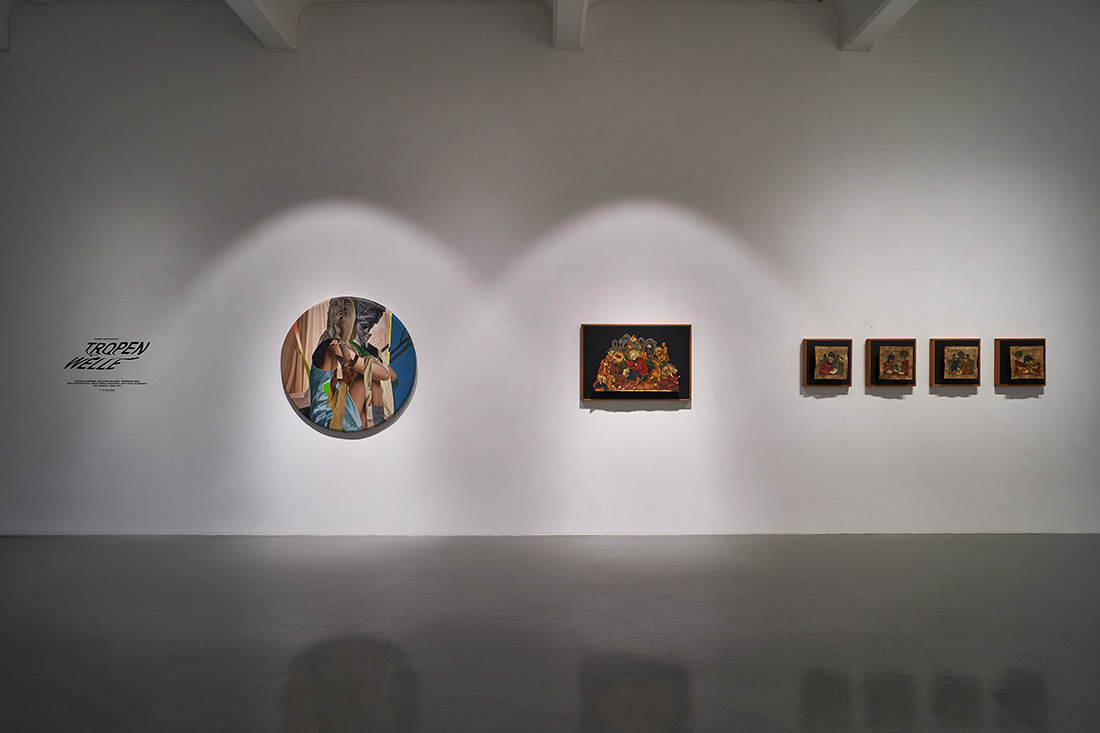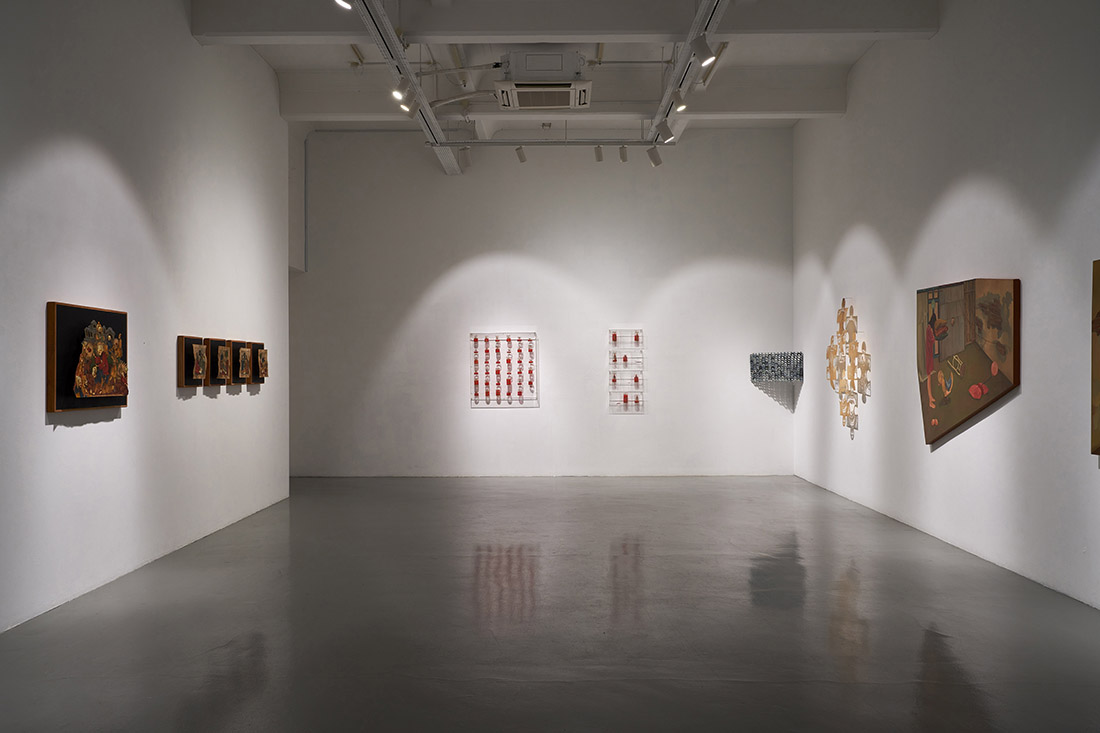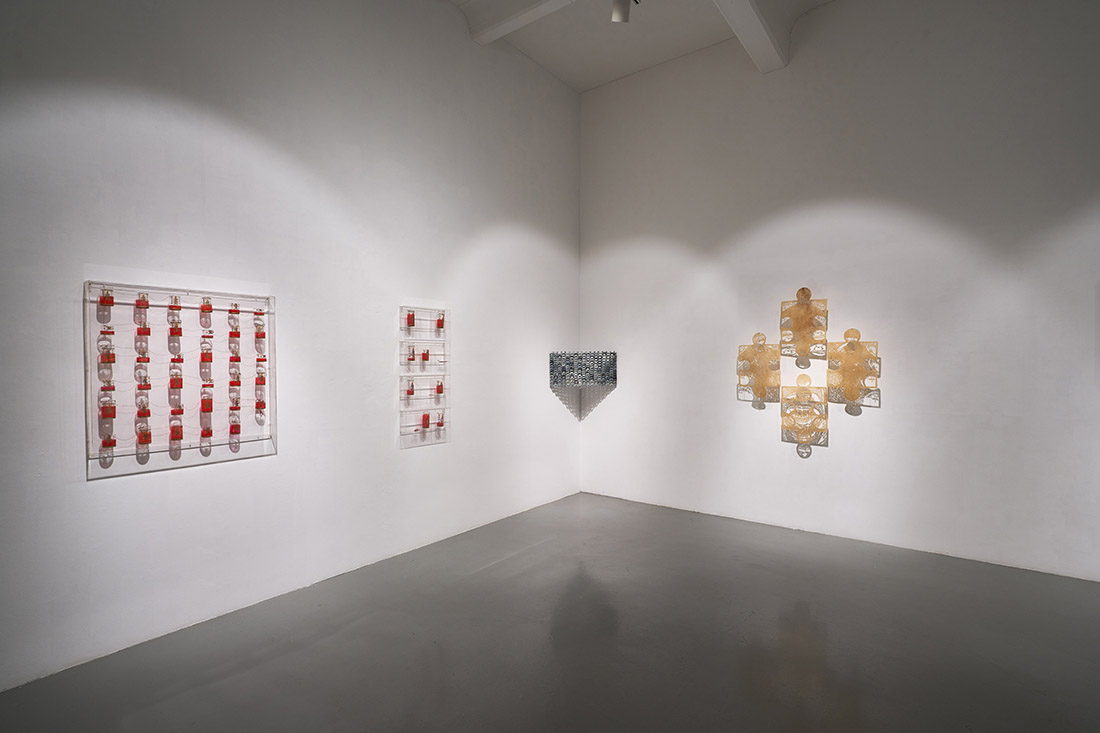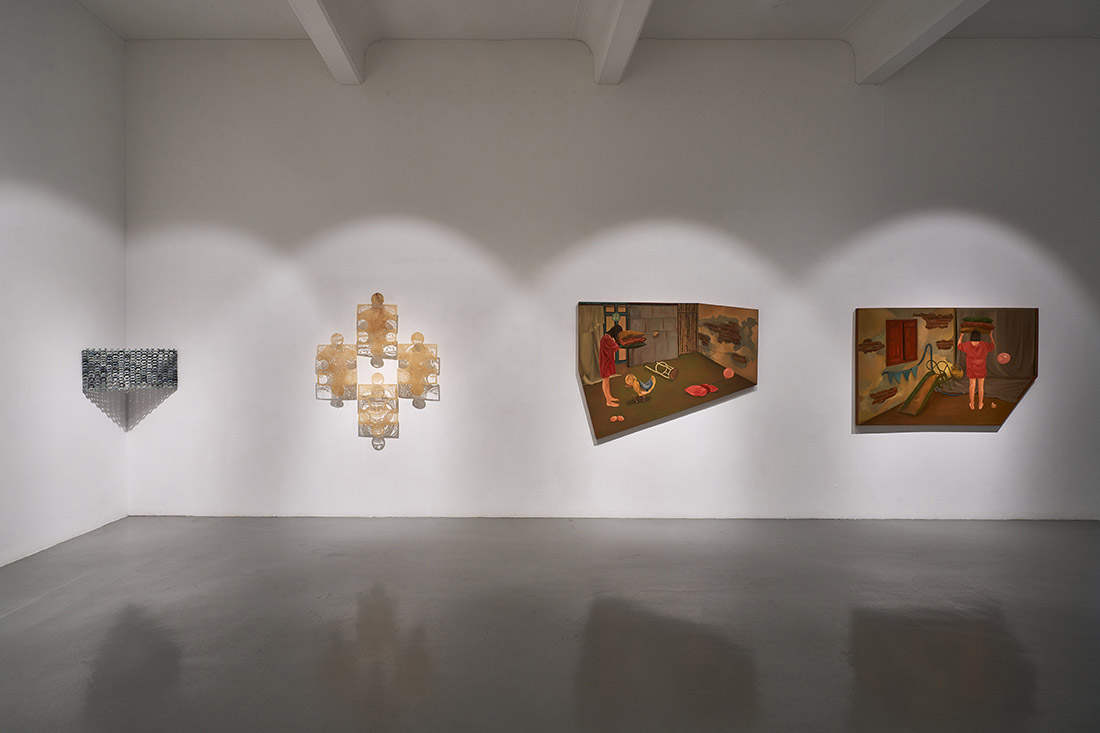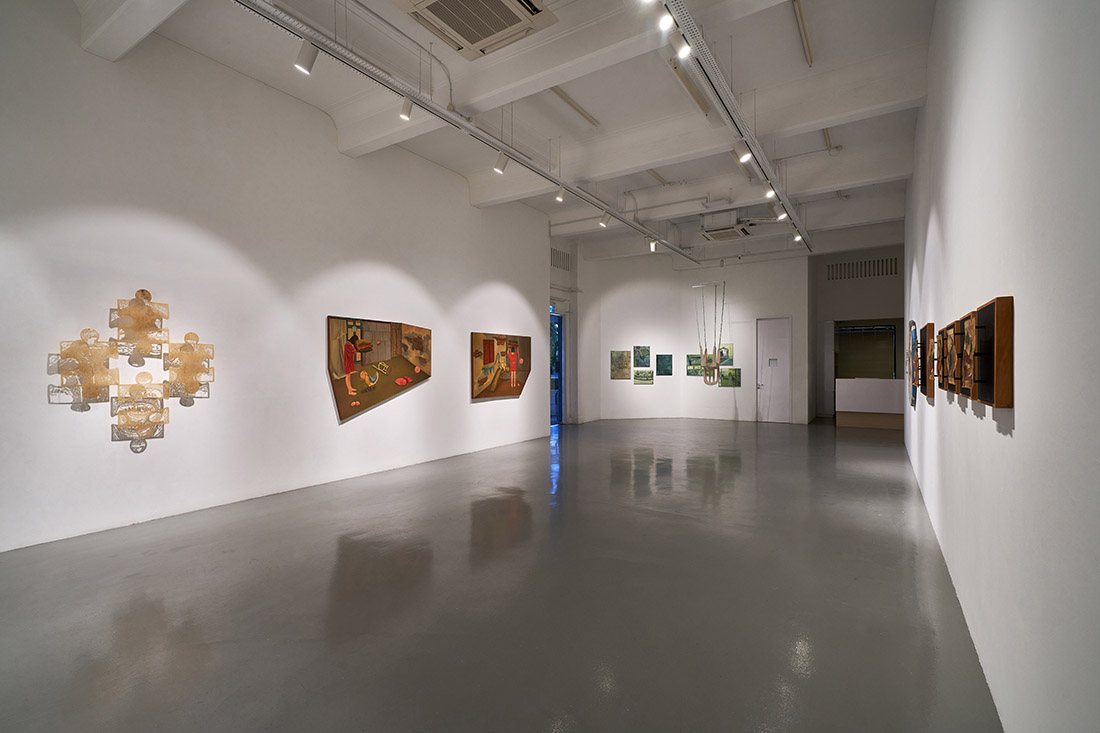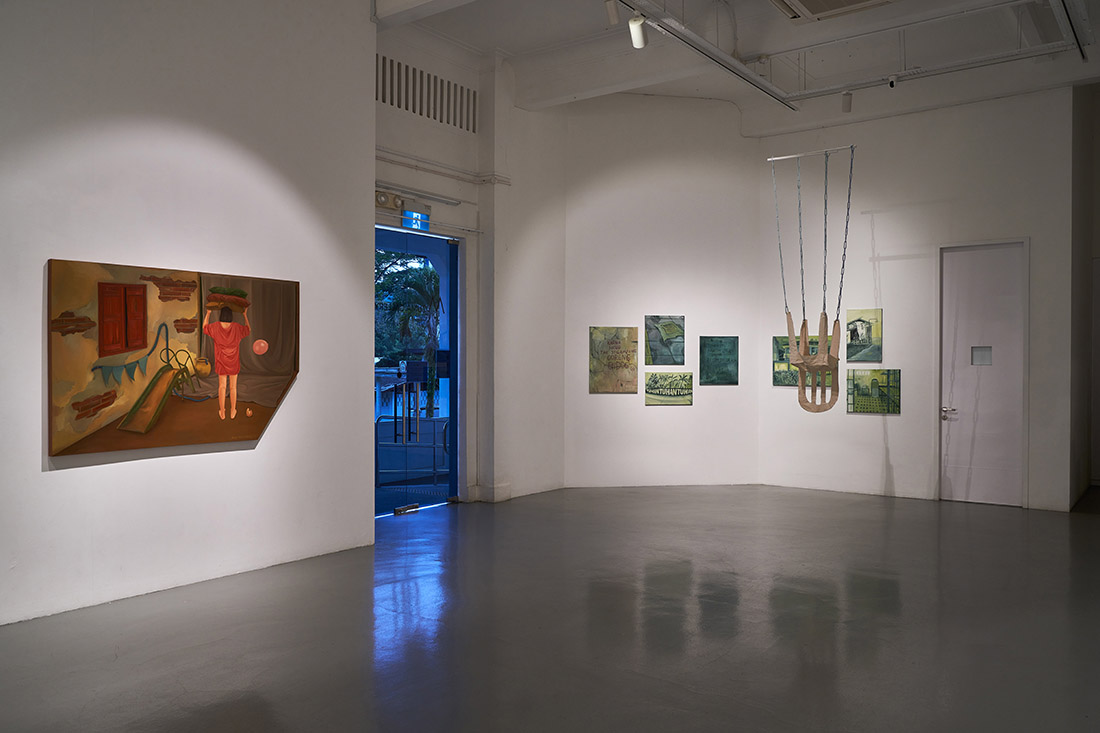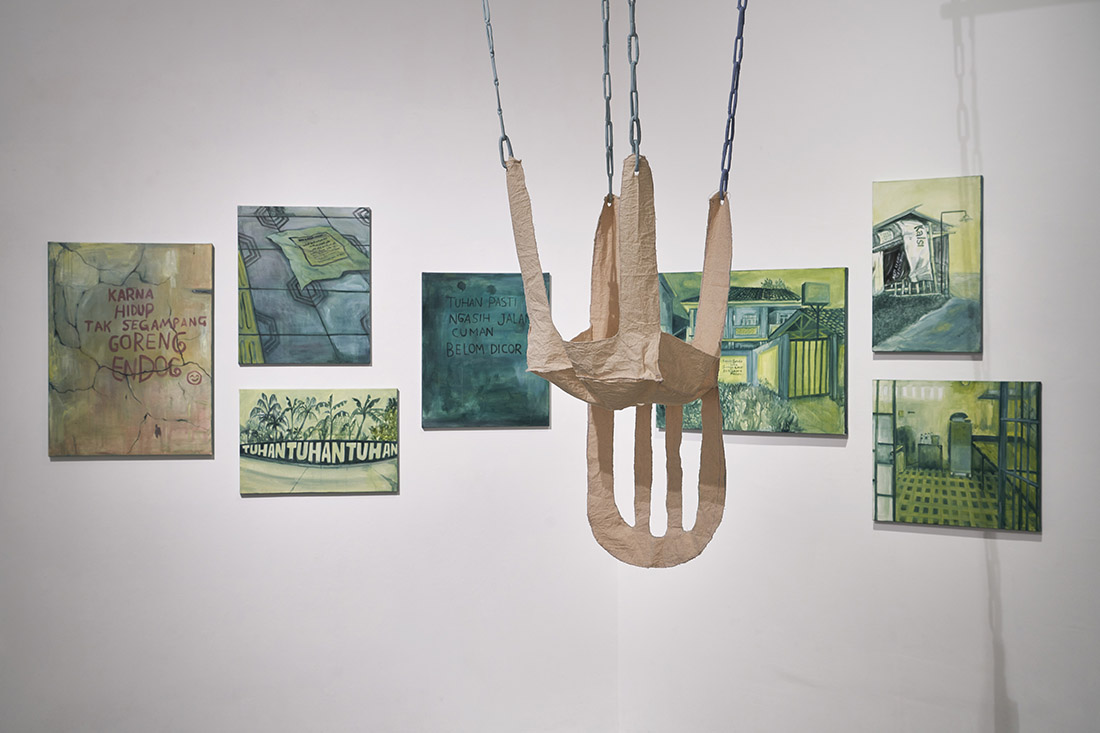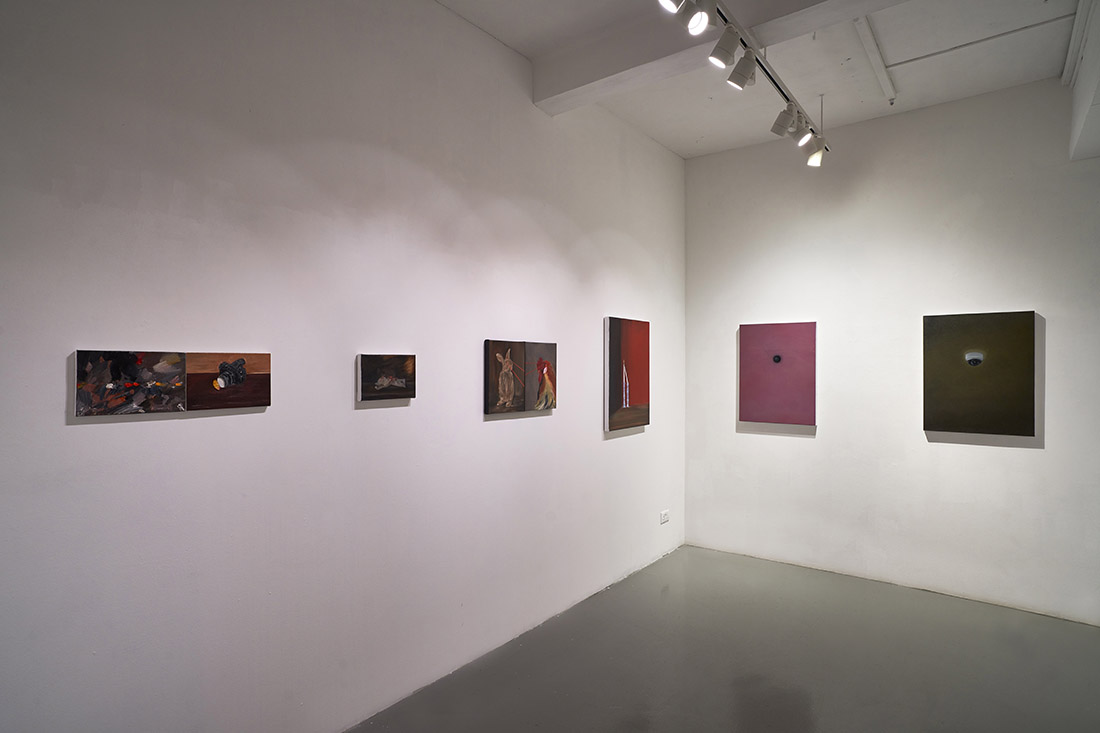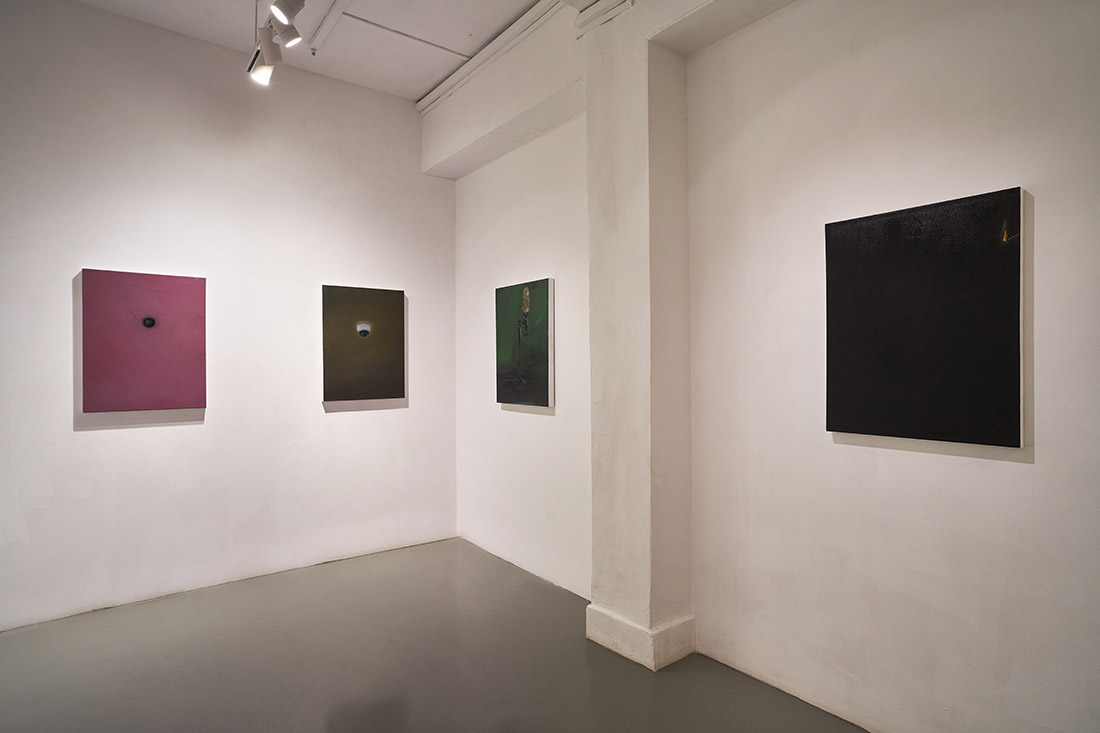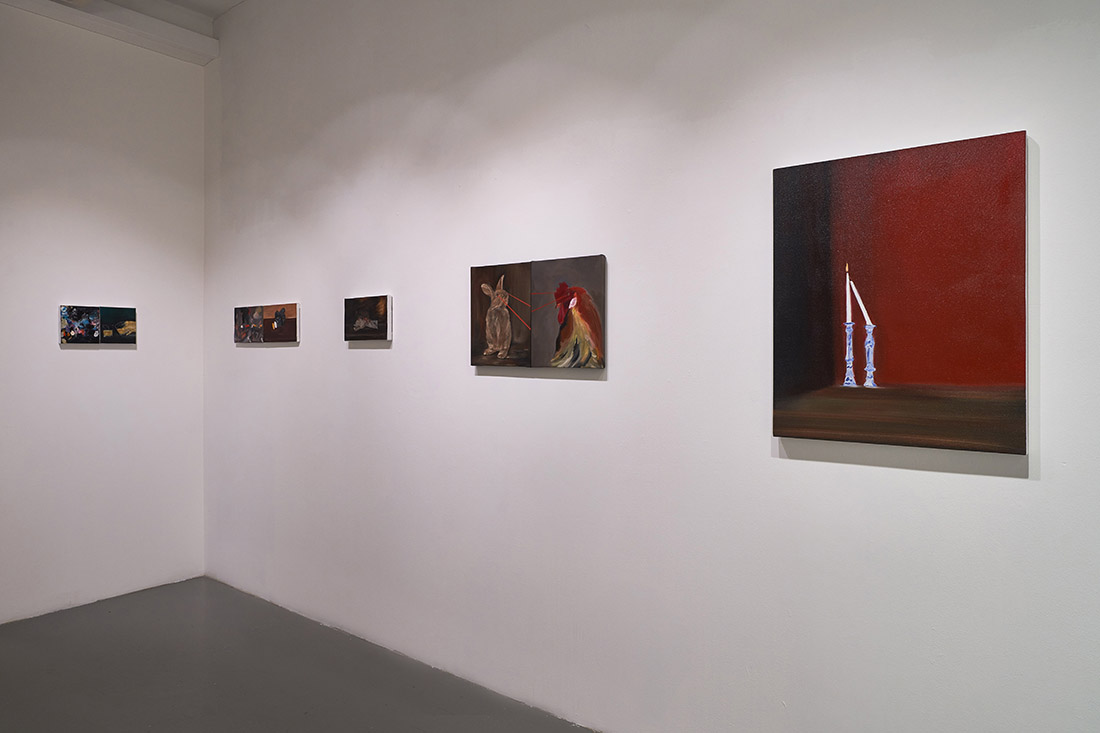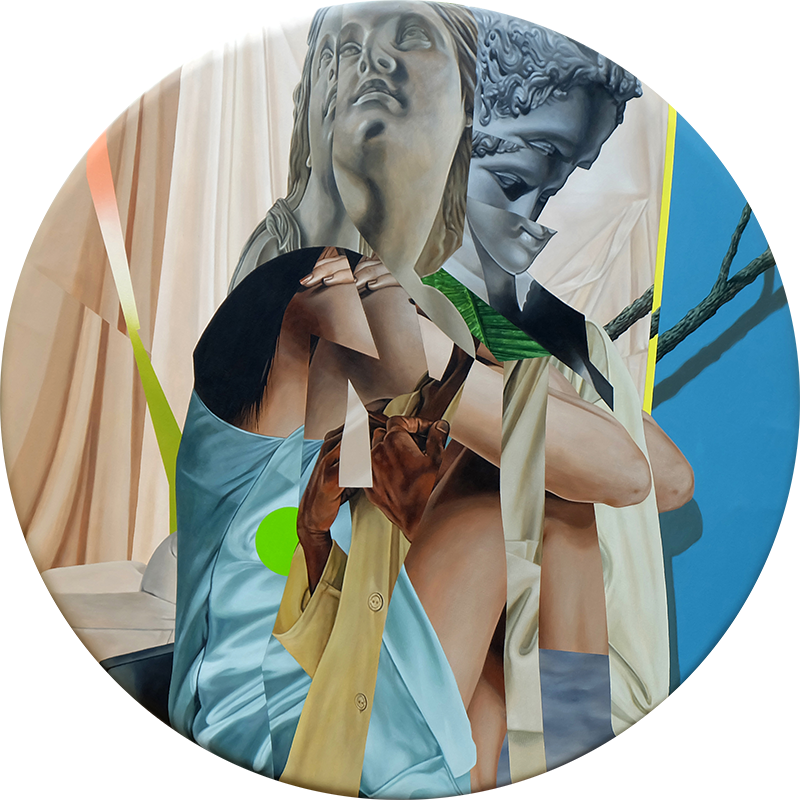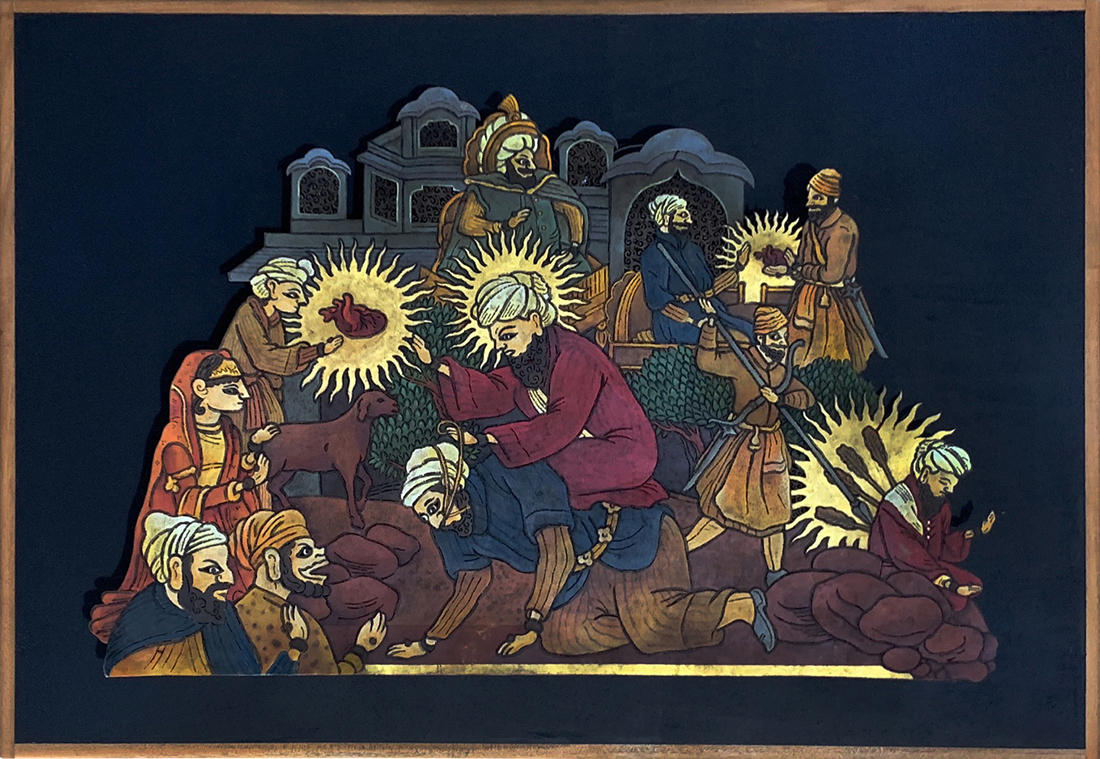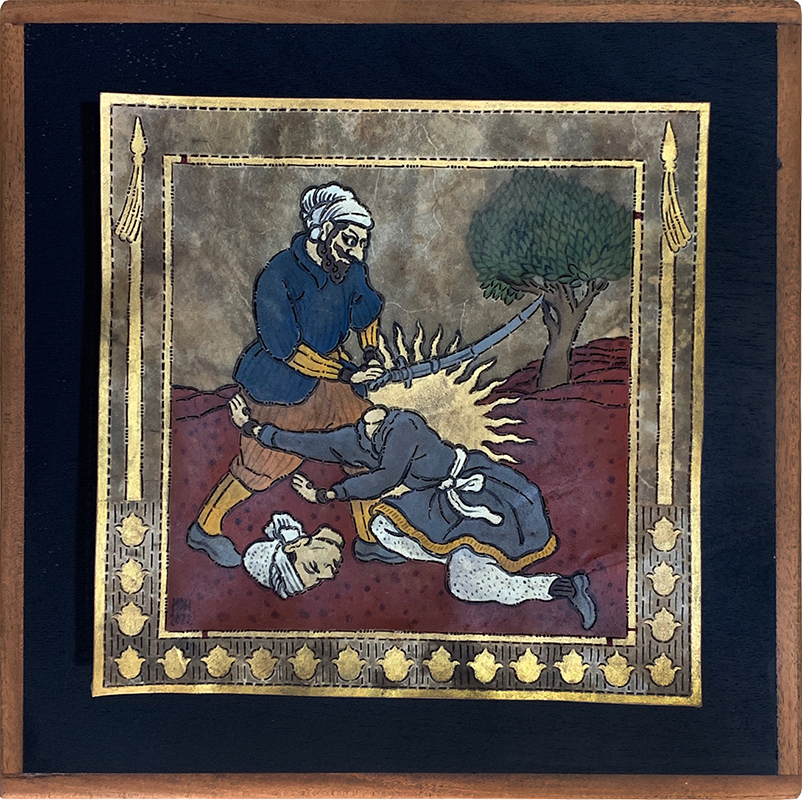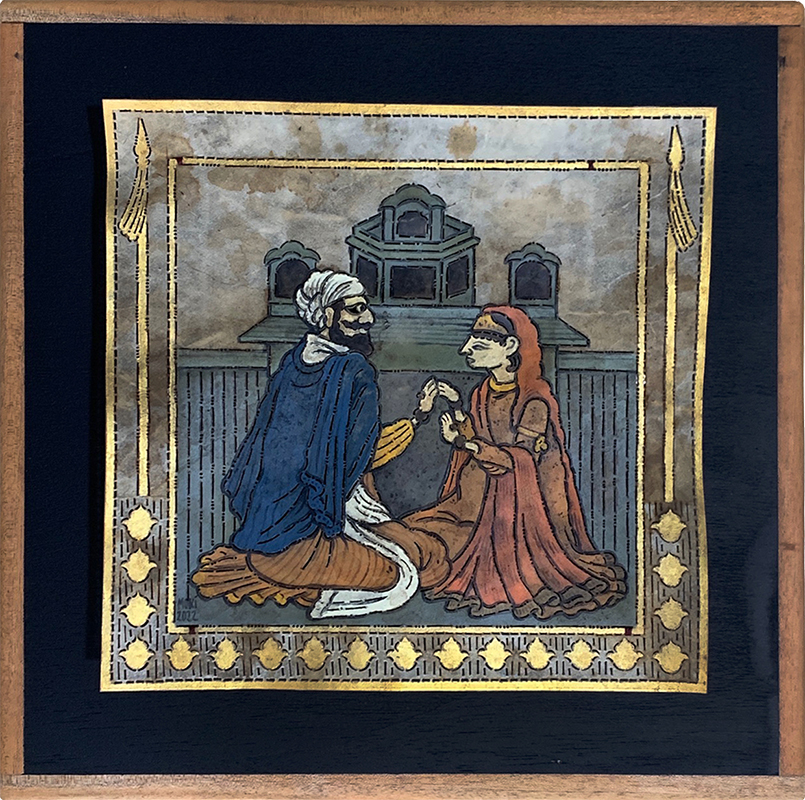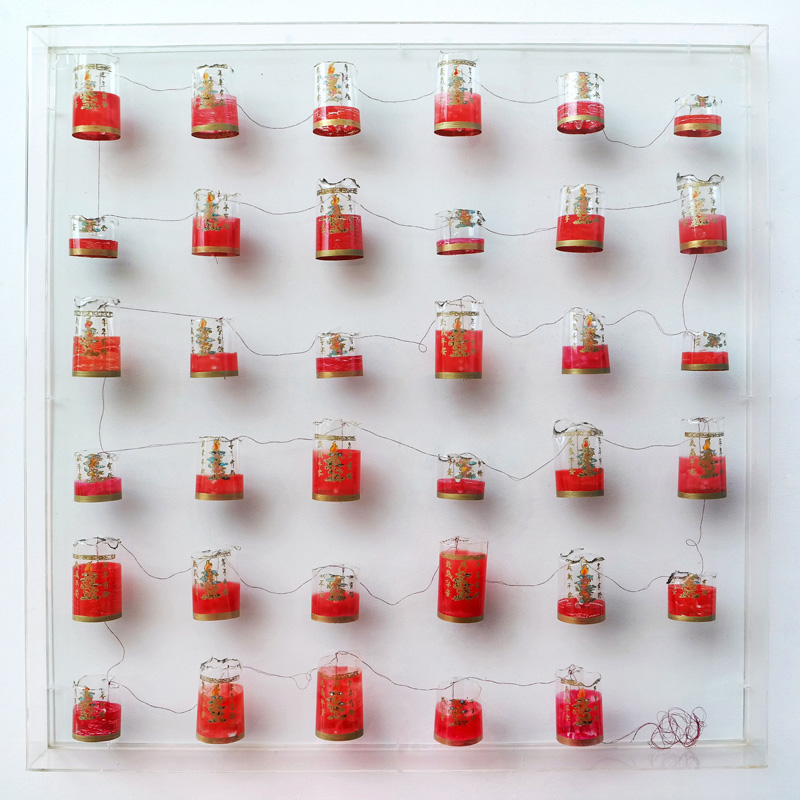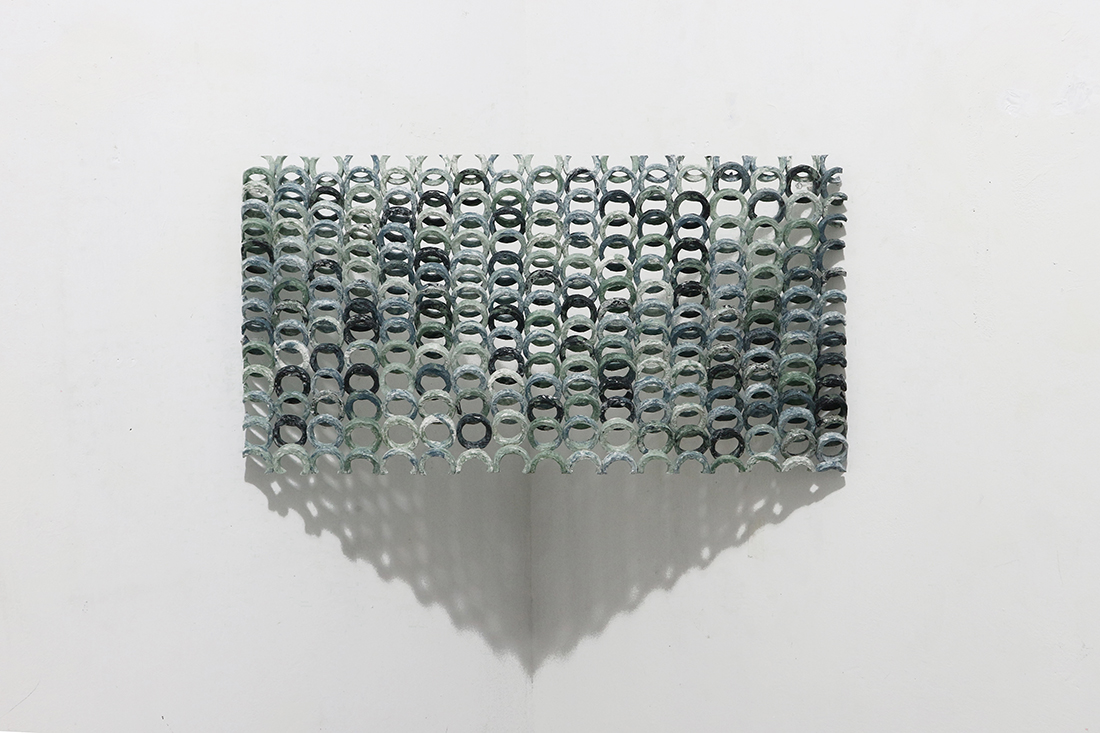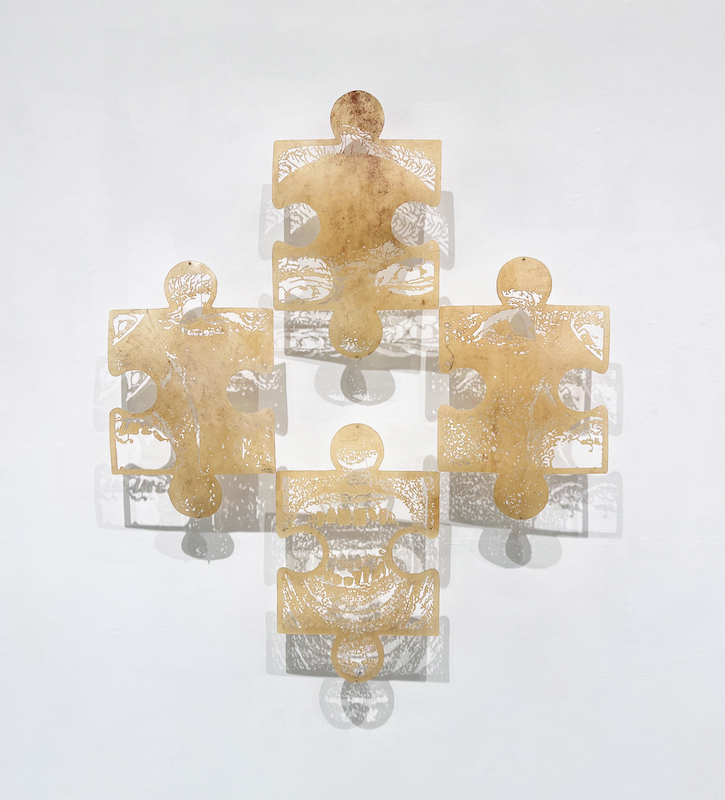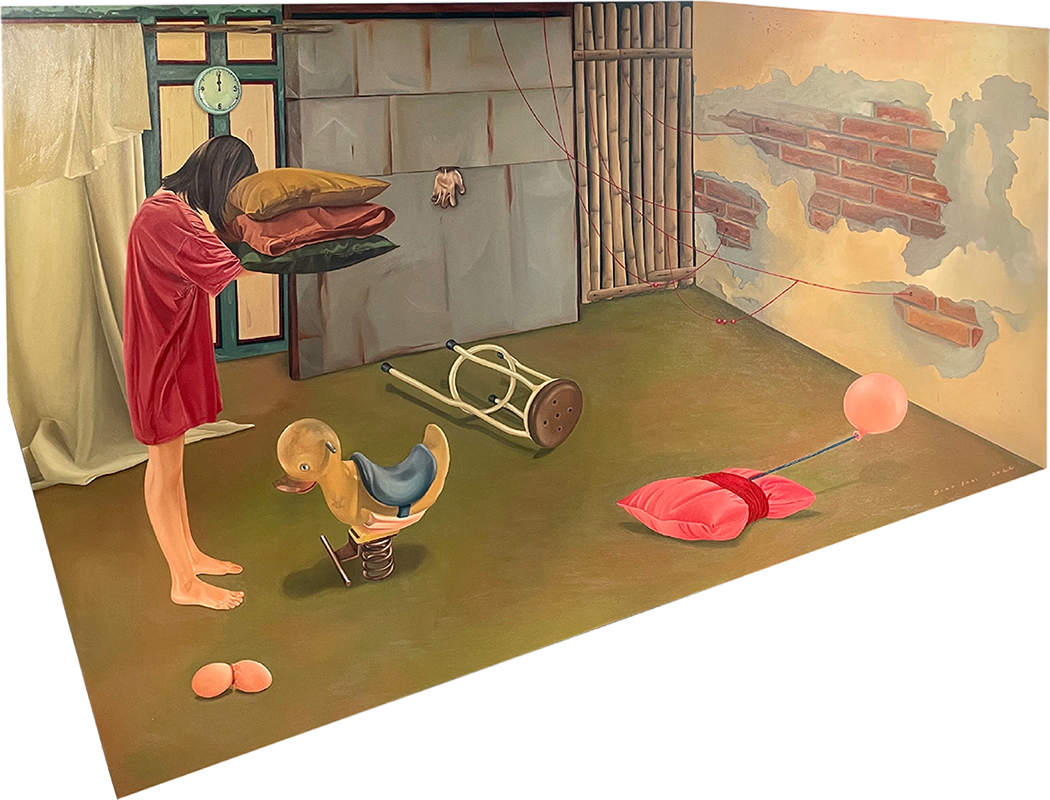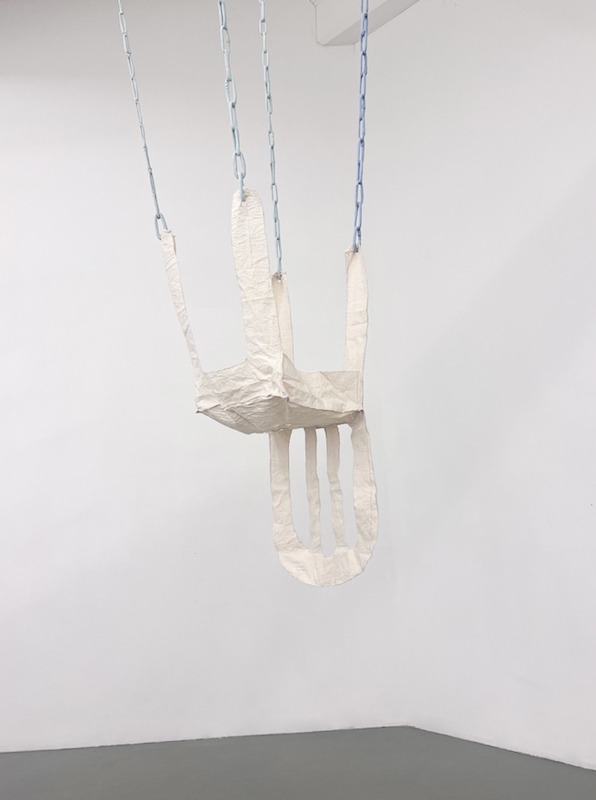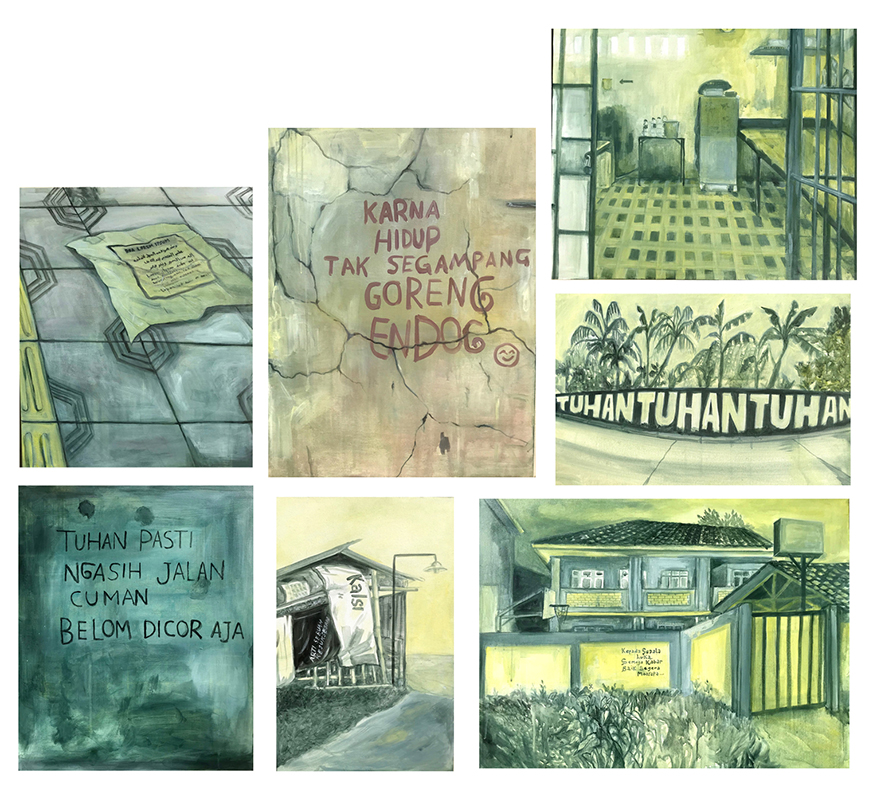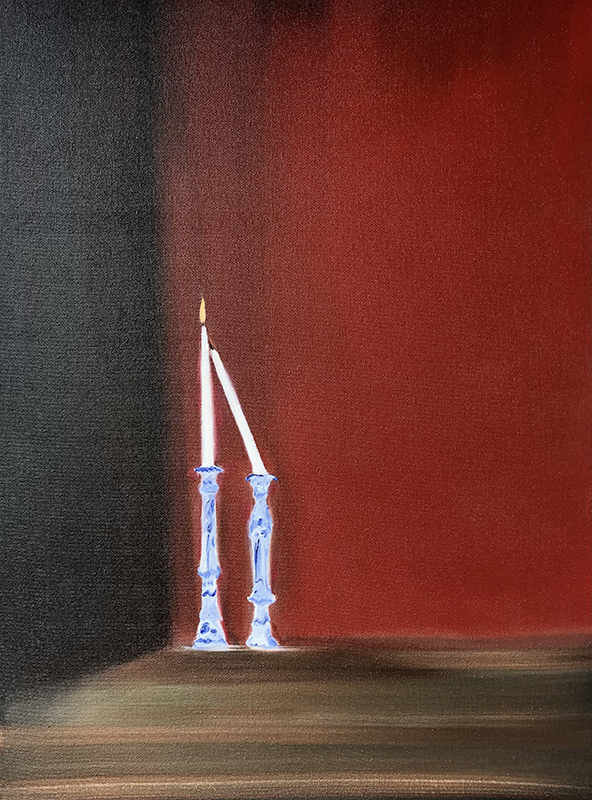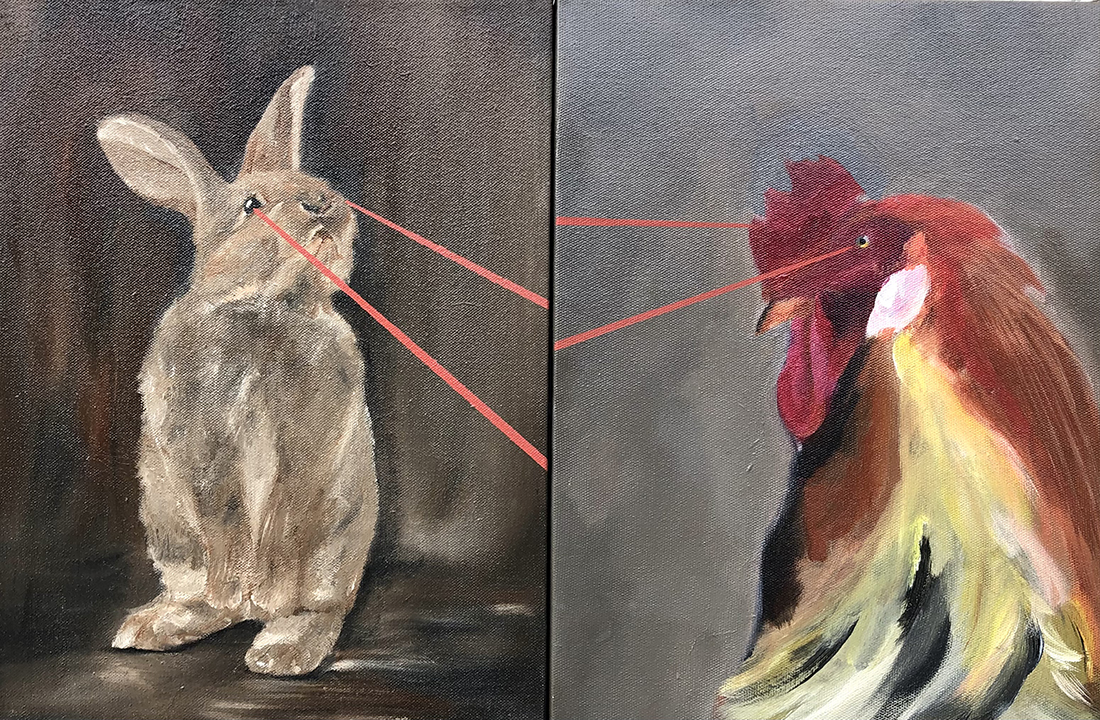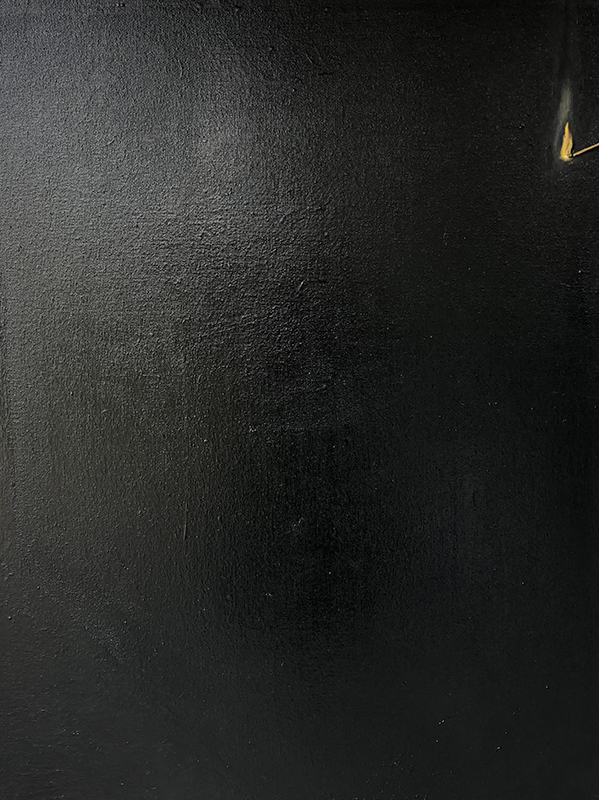Dian Suci Rahmawati, Meliantha Muliawan, Prihatmoko Moki, Restu Ratnaningtyas, Riono Tanggul Nusantoro, Rudy ‘Atjeh’ Dharmawan, Widi Pangestu, Wisnu Auri "Broken White Project: Tropenwelle"(SINGAPORE)
2022年07月02日(土) - 07月31日(日)
Dian Suci Rahmawati, Meliantha Muliawan, Prihatmoko Moki, Restu Ratnaningtyas, Riono Tanggul Nusantoro, Rudy ‘Atjeh’ Dharmawan, Widi Pangestu, Wisnu Auri
2 July – 31 July 2022
Mizuma Gallery is pleased to announce Broken White Project: Tropenwelle, an exhibition featuring eight Indonesian artists, organised in collaboration with Ace House Collective.
Broken White Project is an initiative by Yogyakarta-based artists-run Ace House Collective that works with artists to conduct comprehensive readings of creative processes while optimising the potential for interconnectivity between spaces and artists. Presented as a series of exhibitions, the project focuses on dialogues related to the creation of ideas and artworks, fostering creative processes through a collective work style. These dialogues, networking, and spatial partnerships with artists are an effort to find a methodological framework and to discover a formula for nurturing the creative process of artists and sustaining their artistic works.
This time, Ace House Collective collaborates with Mizuma Gallery to present Broken White Project: Tropenwelle, an exhibition that envisions the Singapore art scene as one of the main pillars of contemporary Asian art today. The activation of inter-spatial networks is crucial in order for us to observe the extent of art’s potential in reading the phenomena and in responding to ideas and changes in our everyday life.
The conceptual outlines carried out in the works exhibited in Broken White Project: Tropenwelle stem from history and collective memory as the foundation, gallery networks as the basis for the areas of practice, contemporary art as the work model, and cultural approaches as the themes. We are currently witnessing the ongoing process of reading and reconstructing of historical records and cultural practices on a public as well as a domestic scale, in order to explore the challenges of the future of Asian contemporary art. This process takes forms in the work practices of artists working with past issues, especially those related to the modes of knowledge, repertoire of local material, cultural productions, and the regional politics tightly related to the decolonization discourse. The jumbled intersection of issues and discourses of contemporary art that converge with global culture has given rise to significant changes and tensions to the intrinsic realm of artists’ studio work. Engaged in an effort to confront cultural amnesia, this exhibition presents eight artists in a variety of conceptual works and creations.
Meliantha Muliawan documents her family’s historic memories and trauma by replicating artefacts of prayer and ritual practices, while the theme of understanding and responding to trauma is raised by Dian Suci Rahmawati through a series of self-portraits dramaturgy. On the other hand, Prihatmoko Moki excavates the myths in literary stories of cultural and religious acculturation which he portrays as counter-discourses on radical religious politics that are developing in today’s society. In a similar vein, Restu Ratnaningtyas highlights socio-political narratives in various portraits of expressions of public escapism in a naive local language. Readings on how the impact of cultural globalism will affect generations is the basis for Wisnu Auri in creating visual interpretations of songs and lyrics that represent his personal history, as is the case with Riono Tanggul Nusantoro who utilises the ‘cut n remix’ logic typical to pop culture as a method in concocting his visuals on canvas. In Widi Pangestu’s work, we see his struggle with paper along with local knowledge-based processing technology to open up new possibilities for creative materials, in the same way Rudy ‘Atjeh’ Dharmawan who re-examined the tatah sungging (carving and decorating) technique of wayang kulit (traditional Javanese shadow puppet) as a cathartic method in creating his works.
Broadly speaking, these eight artists explore new possibilities in their work methods by continually building perspectives and paradigms on every contradiction between oneself and the soul of the era (zeitgeist) by arranging their personal works on the spectrum of social practice.
Broken White Project: Tropenwelle will run from 2 July to 31 July 2022. In conjunction with the exhibition, Mizuma Gallery will publish an e-catalogue with images of artworks by the artists and an exhibition text written by Hendra Himawan.
About Ace House Collective
 Ace House Collective is an artists’ collective that works with communities and their networks in running a space as a youth art and culture laboratory. Established in 2011 on self-funding, this community strives to support and develop the potential and the contribution to the latest art practices by providing a platform for productions, dialogues, and collaborations through assembly forums and exchanges. Ace House Collective’s artistic vision aims to address the role and function of contemporary art in society today. Ace House Collective opened its artist initiative space Ace House Space in Yogyakarta, Indonesia in 2013.
Ace House Collective is an artists’ collective that works with communities and their networks in running a space as a youth art and culture laboratory. Established in 2011 on self-funding, this community strives to support and develop the potential and the contribution to the latest art practices by providing a platform for productions, dialogues, and collaborations through assembly forums and exchanges. Ace House Collective’s artistic vision aims to address the role and function of contemporary art in society today. Ace House Collective opened its artist initiative space Ace House Space in Yogyakarta, Indonesia in 2013.
About the Artists
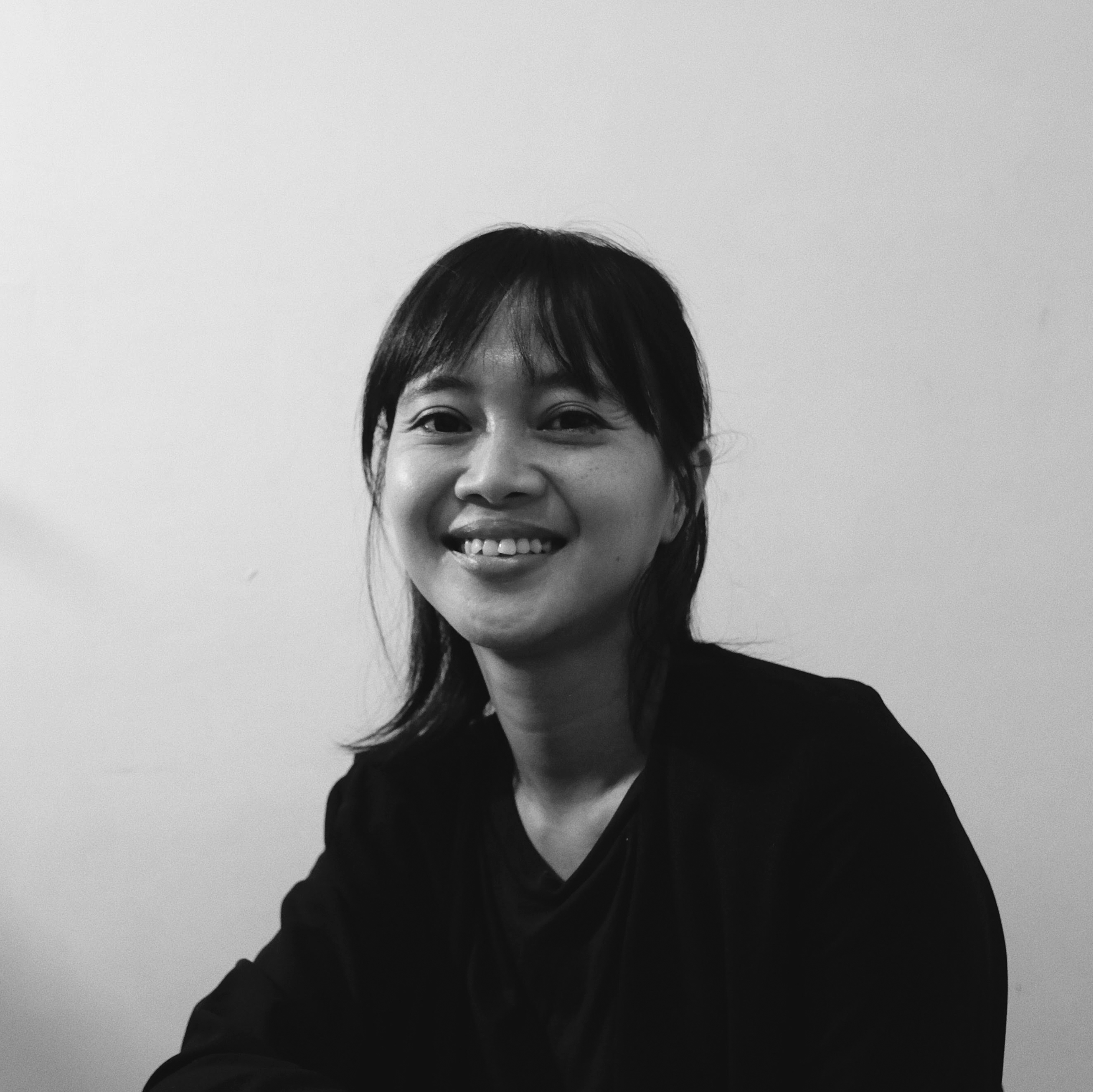 Dian Suci Rahmawati (b. 1985, Kebumen, Indonesia) graduated with a Bachelor in Architecture from the Indonesia Islamic University, Yogyakarta, Indonesia in 2009. Her practice takes root in the domestic realm, with a focus on the domestication of women’s politics, authoritarianism and fascism, patriarchy and capitalism. Dian often conveys her works with an awareness of space, depicting body experiences, and plays on the composition of objects as metaphors. Her notable exhibitions include Aku Pingin Crita Dawa, Nanging Apa Kowe Kuwawa? Aku Kuwawa? at Kedai Kebun Forum, Yogyakarta, Indonesia (2018); Katanya sih, Katanya at LIR Space, Yogyakarta, Indonesia (2016); Biennale Jogja XV Equator: ‘Do We Live in the Same Playground’ at Jogja National Museum, Yogyakarta, Indonesia (2019); among others. She was awarded the Gold Winner, Established Artist Category at the UOB Painting of the Year Indonesia (2021). Dian Suci Rahmawati lives and works in Yogyakarta, Indonesia.
Dian Suci Rahmawati (b. 1985, Kebumen, Indonesia) graduated with a Bachelor in Architecture from the Indonesia Islamic University, Yogyakarta, Indonesia in 2009. Her practice takes root in the domestic realm, with a focus on the domestication of women’s politics, authoritarianism and fascism, patriarchy and capitalism. Dian often conveys her works with an awareness of space, depicting body experiences, and plays on the composition of objects as metaphors. Her notable exhibitions include Aku Pingin Crita Dawa, Nanging Apa Kowe Kuwawa? Aku Kuwawa? at Kedai Kebun Forum, Yogyakarta, Indonesia (2018); Katanya sih, Katanya at LIR Space, Yogyakarta, Indonesia (2016); Biennale Jogja XV Equator: ‘Do We Live in the Same Playground’ at Jogja National Museum, Yogyakarta, Indonesia (2019); among others. She was awarded the Gold Winner, Established Artist Category at the UOB Painting of the Year Indonesia (2021). Dian Suci Rahmawati lives and works in Yogyakarta, Indonesia.
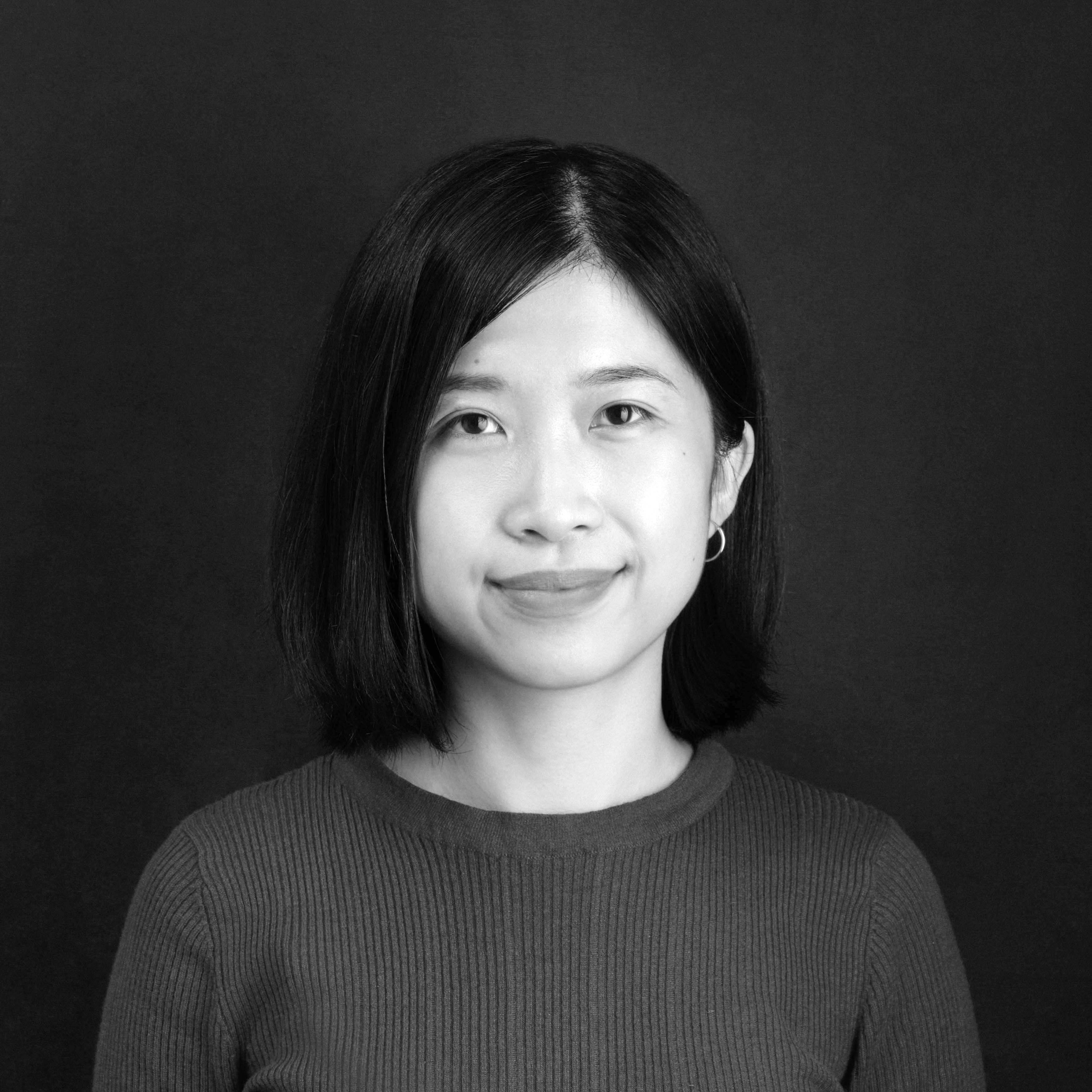 Meliantha Muliawan (b. 1992, Pontianak, Indonesia) graduated with a Bachelor of Fine Art (Painting), Faculty of Visual Art and Design from the Bandung Institute of Technology (ITB), Bandung, Indonesia in 2014. Her practice is centred on observations of domestic objects in her environment, with an interest to understand their functions and roles in our daily lives, in relation to human behaviour and the social situations we find ourselves in. Her notable exhibitions include Translucent at Redbase Foundation Residency Program, Yogyakarta, Indonesia (2017); Biennale Jogja XV Equator: ‘Do We Live in the Same Playground’ at Jogja National Museum, Yogyakarta, Indonesia (2019); Museum of Days at Sullivan+Strumpf, Singapore (2019); amongst others. She was awarded the Top Winner, Established Artist Category at the UOB Painting of the Year Indonesia (2021); and emerged as one of the top three finalists for the Young Artist Award at ARTJOG11 (2018). Meliantha Muliawan lives and works in Depok, Indonesia.
Meliantha Muliawan (b. 1992, Pontianak, Indonesia) graduated with a Bachelor of Fine Art (Painting), Faculty of Visual Art and Design from the Bandung Institute of Technology (ITB), Bandung, Indonesia in 2014. Her practice is centred on observations of domestic objects in her environment, with an interest to understand their functions and roles in our daily lives, in relation to human behaviour and the social situations we find ourselves in. Her notable exhibitions include Translucent at Redbase Foundation Residency Program, Yogyakarta, Indonesia (2017); Biennale Jogja XV Equator: ‘Do We Live in the Same Playground’ at Jogja National Museum, Yogyakarta, Indonesia (2019); Museum of Days at Sullivan+Strumpf, Singapore (2019); amongst others. She was awarded the Top Winner, Established Artist Category at the UOB Painting of the Year Indonesia (2021); and emerged as one of the top three finalists for the Young Artist Award at ARTJOG11 (2018). Meliantha Muliawan lives and works in Depok, Indonesia.
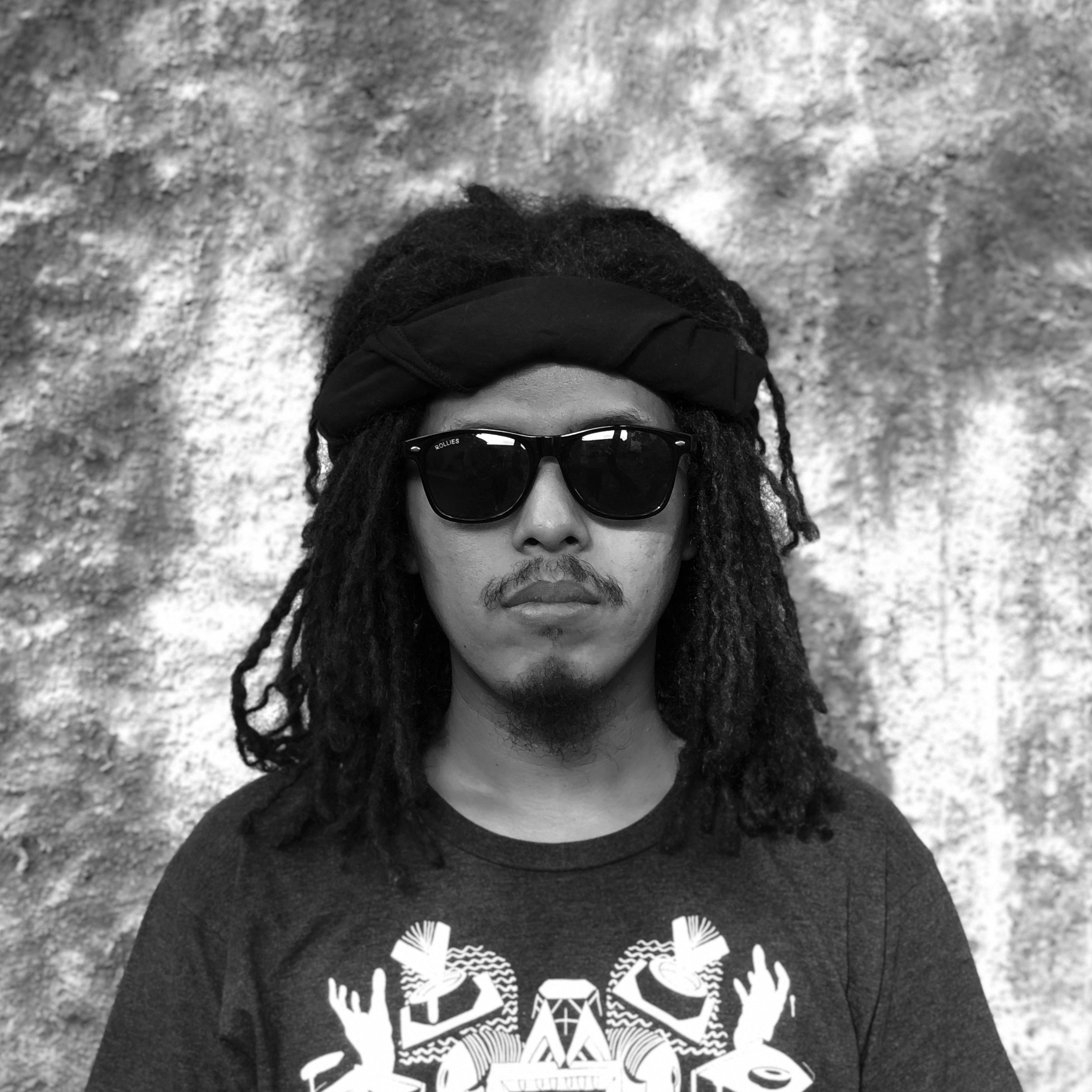 Prihatmoko Moki (b. 1982, Yogyakarta, Indonesia) graduated with a Bachelor in Fine Arts (Printmaking) from the Indonesia Institute of Arts (ISI), Yogyakarta, Indonesia in 2009. His focus on printmaking mediums from silkscreen to batik has extended into comics, murals, music, and performances. Moki’s main interest in the printmaking and silkscreen technique explores its idea of artworks as vernacular objects produced in multiple editions, and the notion of originality and copies. In his practice, he is influenced by historical myths and events to create tension and blurriness between fiction and reality, using them as tools to discuss and understand contemporary social issues. Moki often approaches his works in a satirical and darkly humorous way, a manner he hopes would generate broader arguments. His notable exhibitions include Complex Terrors at Kedai Kebun Forum, Yogyakarta, Indonesia (2021); Prajurit Kalah Tanpa Raja at Kebun Bibi (2017) and Red Base Foundation (2016) in Yogyakarta, Indonesia. He has undertaken residencies at Europalia Art Festival, Brussels, Belgium (2017); ZeroStation, Saigon, Vietnam (2016); and Megalo Print Studio, Canberra, Australia (2014). Moki’s works are represented in the collection of the National Gallery of Victoria, Melbourne, Australia. He was awarded the Silver Winner, Established Artist Category at the UOB Painting of the Year Indonesia (2021). Prihatmoko Moki lives and works in Yogyakarta, Indonesia.
Prihatmoko Moki (b. 1982, Yogyakarta, Indonesia) graduated with a Bachelor in Fine Arts (Printmaking) from the Indonesia Institute of Arts (ISI), Yogyakarta, Indonesia in 2009. His focus on printmaking mediums from silkscreen to batik has extended into comics, murals, music, and performances. Moki’s main interest in the printmaking and silkscreen technique explores its idea of artworks as vernacular objects produced in multiple editions, and the notion of originality and copies. In his practice, he is influenced by historical myths and events to create tension and blurriness between fiction and reality, using them as tools to discuss and understand contemporary social issues. Moki often approaches his works in a satirical and darkly humorous way, a manner he hopes would generate broader arguments. His notable exhibitions include Complex Terrors at Kedai Kebun Forum, Yogyakarta, Indonesia (2021); Prajurit Kalah Tanpa Raja at Kebun Bibi (2017) and Red Base Foundation (2016) in Yogyakarta, Indonesia. He has undertaken residencies at Europalia Art Festival, Brussels, Belgium (2017); ZeroStation, Saigon, Vietnam (2016); and Megalo Print Studio, Canberra, Australia (2014). Moki’s works are represented in the collection of the National Gallery of Victoria, Melbourne, Australia. He was awarded the Silver Winner, Established Artist Category at the UOB Painting of the Year Indonesia (2021). Prihatmoko Moki lives and works in Yogyakarta, Indonesia.
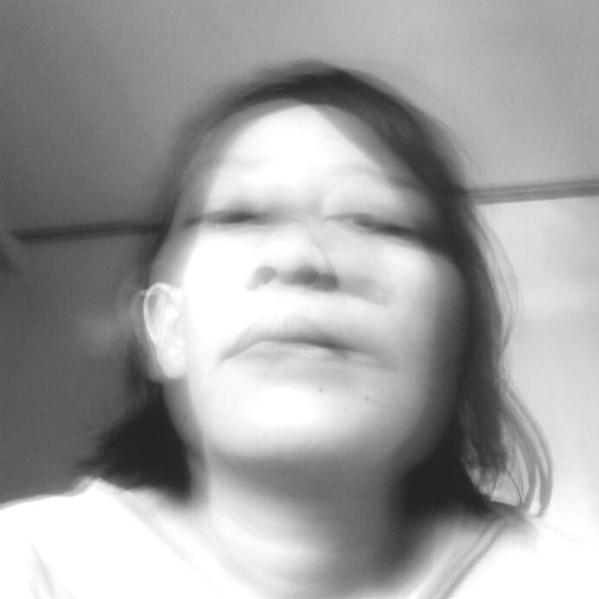 Restu Ratnaningtyas (b. 1981, Tangerang, Indonesia) graduated from the Department of Art Education from the Art Faculty of Jakarta State University (Universitas Negeri Jakarta), Indonesia in 2003. She works through various media, especially watercolour, paper, video, cloth, installation, and multimedia, with a focus on everyday topics, small narratives, and objects related to the balance of human life. Her notable exhibitions include Memento: Privatization Room at Vivi Yip Art Room, Jakarta, Indonesia (2008); Tantrum at Kedai Kebun Forum, Yogyakarta, Indonesia (2016); Subsume at Baik Art, Los Angeles, United States (2017); and Ranah/Tanah at Cemeti Art Institute, Yogyakarta, Indonesia (2019). Restu has also participated in group exhibitions internationally, such as mnmonikos: Art of Memory at Jim Thompson Art Center, Bangkok, Thailand (2013); The Roving Eye at Arter, Istanbul, Turkey (2014), Stealing Public Space at the Substation, Singapore (2020); and Includes at Darren Knights Gallery, Sydney, Australia (2020). Restu Ratnaningtyas lives and works in Yogyakarta, Indonesia.
Restu Ratnaningtyas (b. 1981, Tangerang, Indonesia) graduated from the Department of Art Education from the Art Faculty of Jakarta State University (Universitas Negeri Jakarta), Indonesia in 2003. She works through various media, especially watercolour, paper, video, cloth, installation, and multimedia, with a focus on everyday topics, small narratives, and objects related to the balance of human life. Her notable exhibitions include Memento: Privatization Room at Vivi Yip Art Room, Jakarta, Indonesia (2008); Tantrum at Kedai Kebun Forum, Yogyakarta, Indonesia (2016); Subsume at Baik Art, Los Angeles, United States (2017); and Ranah/Tanah at Cemeti Art Institute, Yogyakarta, Indonesia (2019). Restu has also participated in group exhibitions internationally, such as mnmonikos: Art of Memory at Jim Thompson Art Center, Bangkok, Thailand (2013); The Roving Eye at Arter, Istanbul, Turkey (2014), Stealing Public Space at the Substation, Singapore (2020); and Includes at Darren Knights Gallery, Sydney, Australia (2020). Restu Ratnaningtyas lives and works in Yogyakarta, Indonesia.
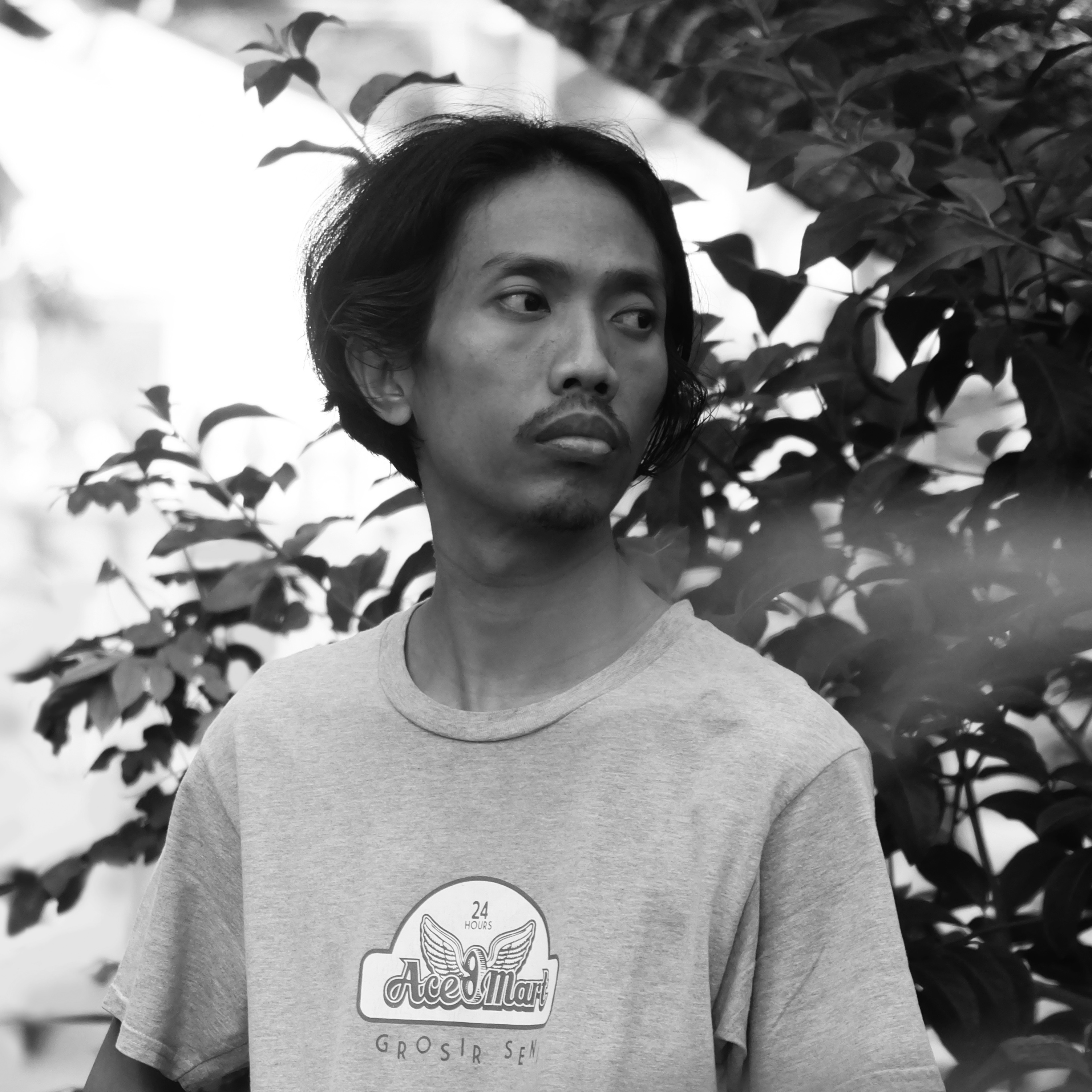 Riono Tanggul Nusantoro (b. 1984, Yogyakarta, Indonesia) graduated with a Bachelor in Fine Arts (Painting) from the Indonesia Institute of Arts (ISI), Yogyakarta, Indonesia in 2010. Having been actively involved in the graffiti and street art scene since 2003, Riono’s practice is strongly influenced by popular culture such as music and comics. His notable exhibitions include Back To The Future #5: Slow, Perfect, and Joy at Ace House, Yogyakarta, Indonesia (2017); Illusesia at Centralstation, Darmstadt, Germany (2015); The Legend of Jogja at Primae Noctis Gallery, Milan, Italy (2104), among others. Riono Tanggul Nusantoro lives and works in Yogyakarta, Indonesia.
Riono Tanggul Nusantoro (b. 1984, Yogyakarta, Indonesia) graduated with a Bachelor in Fine Arts (Painting) from the Indonesia Institute of Arts (ISI), Yogyakarta, Indonesia in 2010. Having been actively involved in the graffiti and street art scene since 2003, Riono’s practice is strongly influenced by popular culture such as music and comics. His notable exhibitions include Back To The Future #5: Slow, Perfect, and Joy at Ace House, Yogyakarta, Indonesia (2017); Illusesia at Centralstation, Darmstadt, Germany (2015); The Legend of Jogja at Primae Noctis Gallery, Milan, Italy (2104), among others. Riono Tanggul Nusantoro lives and works in Yogyakarta, Indonesia.
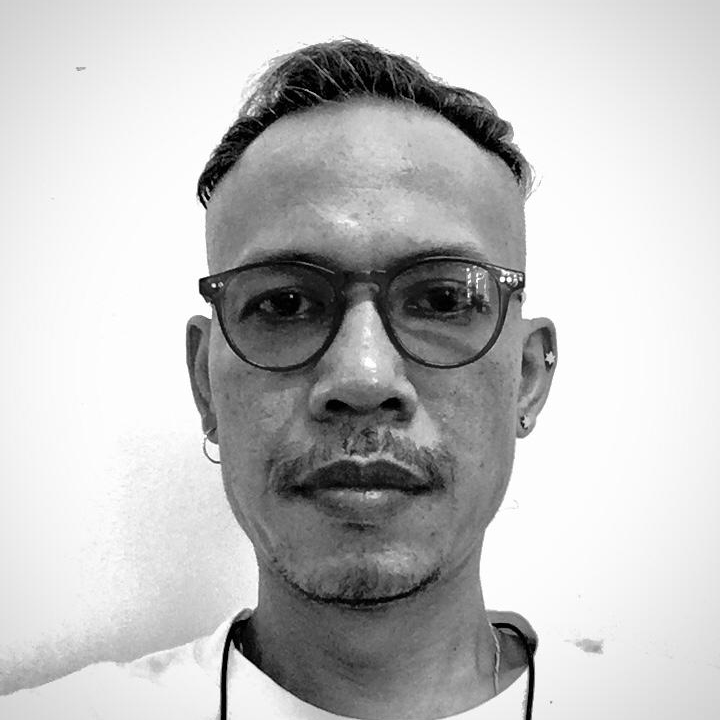 Rudy ‘Atjeh’ Dharmawan (b. 1982, Langsa, Indonesia) graduated from the Fine Arts Department in the Indonesia Institute of Arts (ISI), Yogyakarta, Indonesia in 2009. Personal narratives and everyday issues are frequent themes in his practice, particularly with regards to identity. He is constantly negotiating with his closeness to the youth culture and background of his motherland, Nanggroe Aceh Darussalam, where the Moslem Sharia Law and its political conflict still exist in daily life. His notable exhibitions are RUCI Art Space & Ace House Collective: Broken White Project Touchdown Jakarta! at RUCI Art Space, Jakarta, Indonesia (2021); Manifesto 6.0 “Multipolar” at National Gallery of Indonesia, Jakarta, Indonesia (2018); Asia Young 36 at Jeonbuk Museum of Art, Jeonju, South Korea (2016); Welcome To The Jungle at Kedai Kebun Forum, Yogyakarta, Indonesia (2012); among others. Rudy has undertaken residency at SAN ART, Session 5 San Art Laboratory, Ho Chi Minh City, Saigon, Vietnam (2014). Rudy ‘Atjeh’ Dharmawan lives and works in Yogyakarta, Indonesia.
Rudy ‘Atjeh’ Dharmawan (b. 1982, Langsa, Indonesia) graduated from the Fine Arts Department in the Indonesia Institute of Arts (ISI), Yogyakarta, Indonesia in 2009. Personal narratives and everyday issues are frequent themes in his practice, particularly with regards to identity. He is constantly negotiating with his closeness to the youth culture and background of his motherland, Nanggroe Aceh Darussalam, where the Moslem Sharia Law and its political conflict still exist in daily life. His notable exhibitions are RUCI Art Space & Ace House Collective: Broken White Project Touchdown Jakarta! at RUCI Art Space, Jakarta, Indonesia (2021); Manifesto 6.0 “Multipolar” at National Gallery of Indonesia, Jakarta, Indonesia (2018); Asia Young 36 at Jeonbuk Museum of Art, Jeonju, South Korea (2016); Welcome To The Jungle at Kedai Kebun Forum, Yogyakarta, Indonesia (2012); among others. Rudy has undertaken residency at SAN ART, Session 5 San Art Laboratory, Ho Chi Minh City, Saigon, Vietnam (2014). Rudy ‘Atjeh’ Dharmawan lives and works in Yogyakarta, Indonesia.
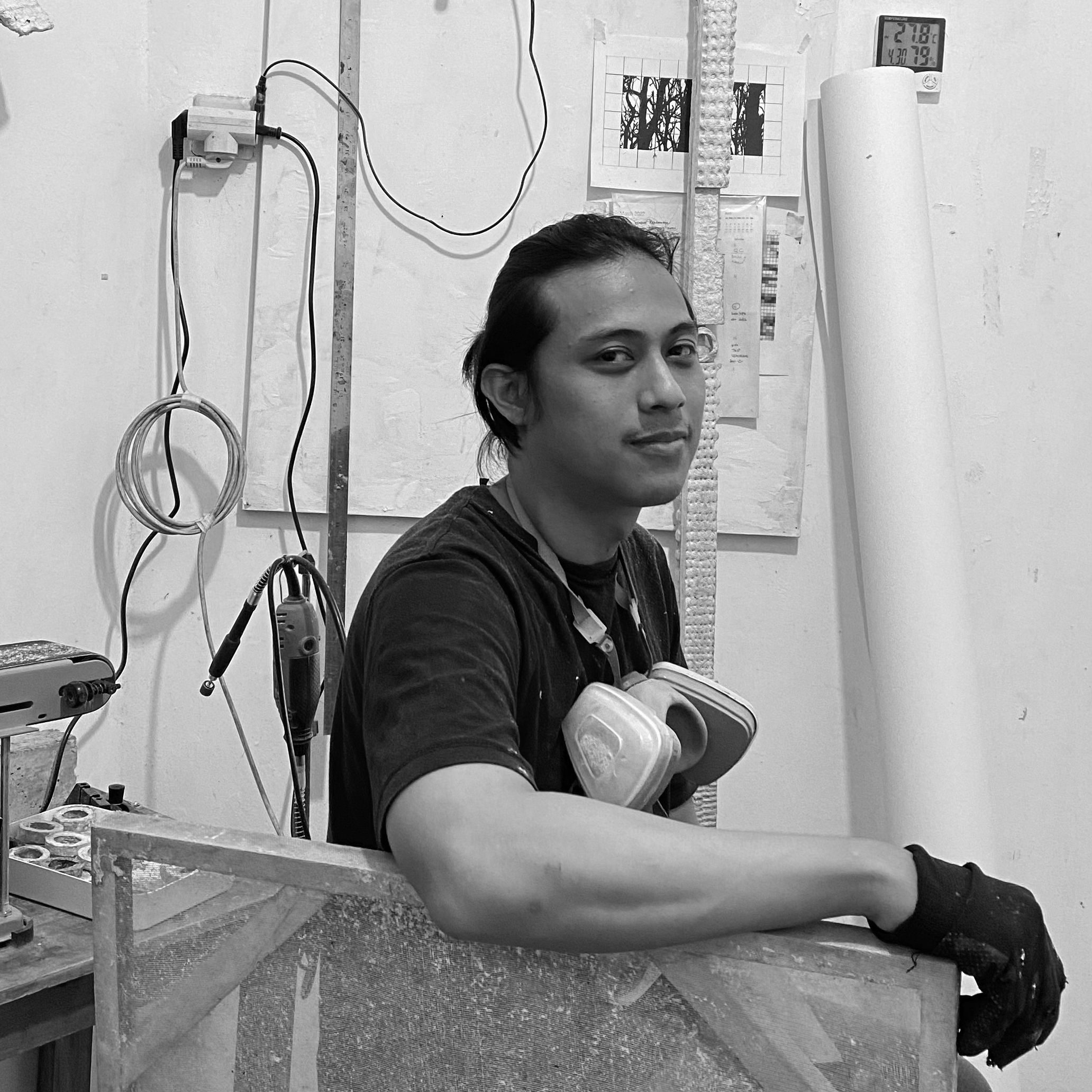 Widi Pangestu (b. 1993, Bandung, Indonesia) graduated with a Bachelor in Fine Arts (Painting) from the Indonesia Institute of Arts (ISI), Yogyakarta, Indonesia in 2021. Mainly working with the paper medium, Widi’s experimentations take place inside the spectrum of material-crafting, focusing on the image-making, object-making, and the details of the experimentation process as a work of artistic research. It explores the possibilities in material-crafting through different traditional (manual) preferences, while colliding them with rhetorical experiences encountered during the process. Widi works are then presented to emphasise how human relations are carried out through the transformation of paper materials. The biomorphic quality in the work and the fragility it presents are a form of intersection between organic principles and the practice of an industrial society. His notable exhibitions include Making Sense of Sense Making at Ace House, Yogyakarta, Indonesia (2021); Everything in Between at Indonesia Contemporary Art Network (ICAN), Yogyakarta, Indonesia (2017), among others. Widi was a Finalist in the 39th UOB Painting of the Year competition in 2019. Widi Pangestu lives and works in Yogyakarta, Indonesia.
Widi Pangestu (b. 1993, Bandung, Indonesia) graduated with a Bachelor in Fine Arts (Painting) from the Indonesia Institute of Arts (ISI), Yogyakarta, Indonesia in 2021. Mainly working with the paper medium, Widi’s experimentations take place inside the spectrum of material-crafting, focusing on the image-making, object-making, and the details of the experimentation process as a work of artistic research. It explores the possibilities in material-crafting through different traditional (manual) preferences, while colliding them with rhetorical experiences encountered during the process. Widi works are then presented to emphasise how human relations are carried out through the transformation of paper materials. The biomorphic quality in the work and the fragility it presents are a form of intersection between organic principles and the practice of an industrial society. His notable exhibitions include Making Sense of Sense Making at Ace House, Yogyakarta, Indonesia (2021); Everything in Between at Indonesia Contemporary Art Network (ICAN), Yogyakarta, Indonesia (2017), among others. Widi was a Finalist in the 39th UOB Painting of the Year competition in 2019. Widi Pangestu lives and works in Yogyakarta, Indonesia.
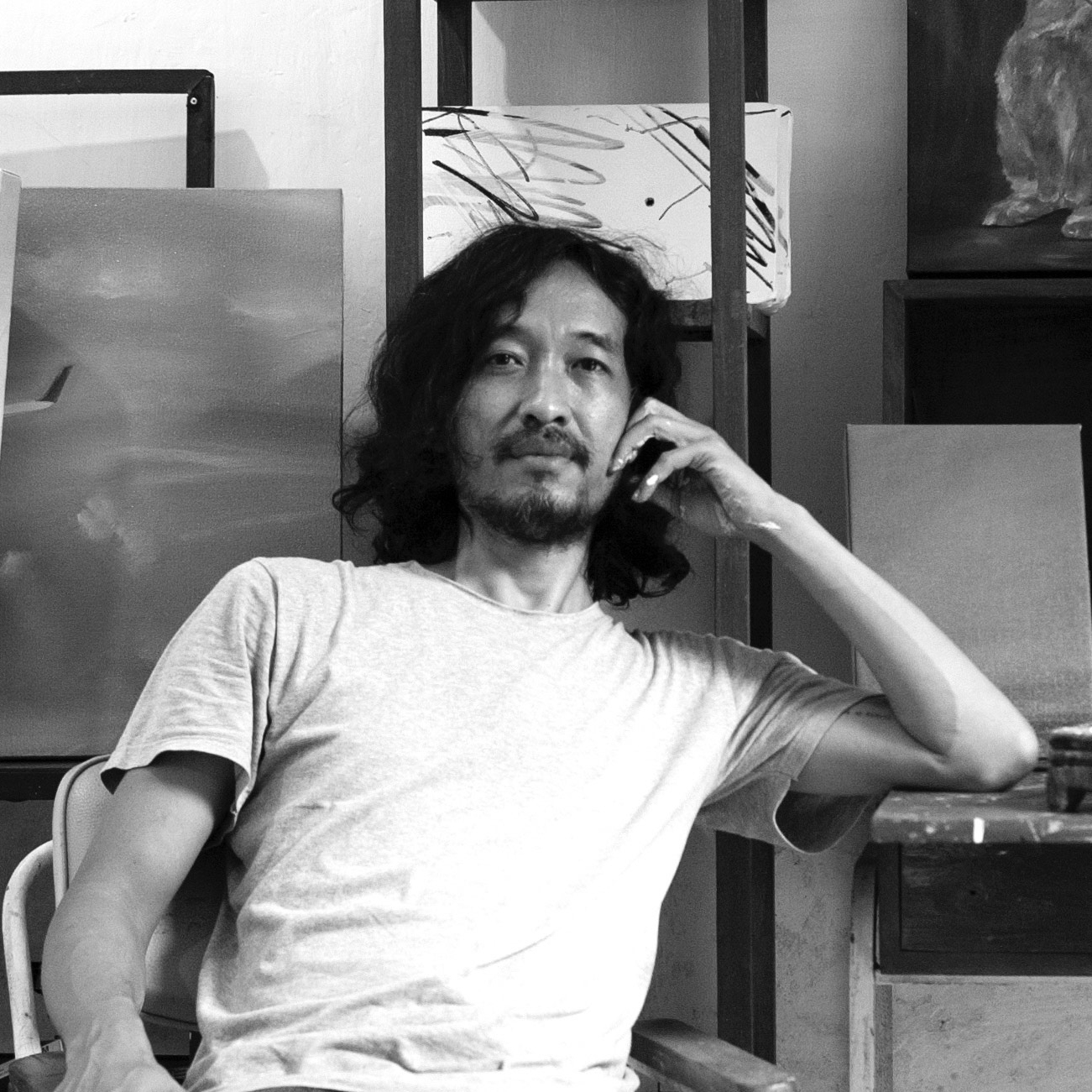 Wisnu Auri (b. 1981, Yogyakarta, Indonesia) graduated with a Bachelor in Fine Arts (Printmaking) from the Indonesia Institute of Arts (ISI), Yogyakarta, Indonesia in 2008. Taking the forms of drawings, paintings, found objects, and mixed media, Wisnu’s works are closely related to the dynamics of everyday life within the society, drawing from his personal stories of life, relationships, and his surroundings. His notable exhibitions include The Broken White Project #10: Now Playing at Ace House, Yogyakarta, Indonesia (2022); I Am Just Doing Aesthetics at Element Art Space, Singapore (2015); MANIFESTO at Galeri Nasional Indonesia, Jakarta, Indonesia (2018), among others. His works are represented in the collection of Akili Museum of Art, Jakarta, Indonesia. Wisnu Auri lives and works in Yogyakarta, Indonesia.
Wisnu Auri (b. 1981, Yogyakarta, Indonesia) graduated with a Bachelor in Fine Arts (Printmaking) from the Indonesia Institute of Arts (ISI), Yogyakarta, Indonesia in 2008. Taking the forms of drawings, paintings, found objects, and mixed media, Wisnu’s works are closely related to the dynamics of everyday life within the society, drawing from his personal stories of life, relationships, and his surroundings. His notable exhibitions include The Broken White Project #10: Now Playing at Ace House, Yogyakarta, Indonesia (2022); I Am Just Doing Aesthetics at Element Art Space, Singapore (2015); MANIFESTO at Galeri Nasional Indonesia, Jakarta, Indonesia (2018), among others. His works are represented in the collection of Akili Museum of Art, Jakarta, Indonesia. Wisnu Auri lives and works in Yogyakarta, Indonesia.
